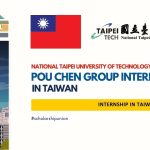Royal Society University Research Fellowship 2025-26 is now open for applications, offering a prestigious and fully funded opportunity for outstanding early-career scientists. This UK-based fellowship is designed to support innovative researchers by providing them with the time, flexibility, and resources needed to advance cutting-edge scientific work. The University Research Fellowship (URF) aims to foster the next generation of global research leaders and is an excellent pathway for those seeking to build an independent career in academia or science.
The Royal Society University Research Fellowship provides up to £1.87 million over eight years, making it one of the most competitive research grants in the UK. Fellows benefit from long-term support, including a mid-term review in year four to ensure continued funding through to year eight. Open to researchers who wish to work in the UK or the Republic of Ireland, this fellowship is a golden opportunity to secure your place among the world’s top scientific minds. Apply now and take the next step toward becoming a future leader in your field.
Fellowship Summary
- Country: United Kingdom
- Host: Royal Society
- Study Level: PhD
- Benefits: Fully Funded
- Deadline: 10 September 2025
Benefits of the Royal Society University Research Fellowship
- It is a fully funded fellowship where fellows can apply for up to £1.87 million for an eight-year period.
- These funds can be used to cover part of the award holder’s salary, indirect and estate costs, equipment and research expenses, including consumables and travel.
- Similarly, the funds will also cover relocation and visa costs for the applicant and their dependents (partner and children). The URF will provide support for new four-year PhD studentship(s).
- The Royal Society University Research Fellowship offers flexibility to accommodate personal circumstances such as part-time work, sabbaticals and secondments.
- Maternity, paternity, shared parental, adoptive, or extended sick leave provisions are available, along with financial support for childcare costs incurred from attending conferences and research visits.
- Moreover, Royal Society Research Fellows can access various career development and engagement opportunities, including training in leadership, science communication, and public engagement.
- The Royal Society University Research Fellowship (URF) programme is a life-changing opportunity and the Royal Society awards have significantly impacted many researchers’ careers.
- It is an excellent chance to pursue research in the UK and undertake a Royal Society research fellowship.
Eligibility Criteria for Royal Society University Research Fellowship
- Fellows must have three to eight years of research experience, excluding career breaks, since their PhD by the deadline for the round.
- They do not have any permanent positions in major universities or non-profit research organizations (such as proleptic or rolling employment contracts).
- Furthermore, to be eligible for the Royal Society University Research Fellowship, applicants should not have previously held a fellowship equivalent to this one, which provides an opportunity to establish an independent research group and attain independent researcher status.
- Applicants’ research should fall within the Royal Society’s available fields. Including, but not limited to natural sciences, biological research, biomedical sciences, chemistry, engineering, mathematics and physics.
- Applicants can be of any nationality and those requiring a visa are eligible to apply for a Global Talent Visa through the fast-track endorsement process.
- Research Ireland funds applicants from Ireland (ROI). They will need to read the eligibility requirements in the specified scheme notes.
Royal Society University Fellowship Research Areas
- Astronomy
- Cosmology
- Earth sciences
- Physics
- Environmental, physical sciences
- Geosciences
- Chemistry and Engineering
- Pure and applied mathematics
- Statistics
- Computer science and communications
- Computer engineering
- Mathematical aspects of astronomy
- Physics, Gravitation, Theoretical physics
- Molecular and cellular biology, zoology, plant sciences, and physiology
- Biomedical Sciences
How to Apply for the Royal Society University Research Fellowship
- Apply now via the official Royal Society Fellowship portal
- Submit your application through the Flexi-Grant system
- Applications are reviewed by 5 Research Appointment Panels based on your research field
- Reviewed by at least two scientific experts after eligibility checks
- Shortlisted candidates will be invited for an in-person interview at the Royal Society
- Decisions announced by 30 June 2026
- Apply before the deadline to be considered
Frequently Asked Questions (FAQs)
The Royal Society University Research Fellowship supports outstanding early‑career scientists in natural sciences with up to eight years’ funding (max £1.87 M), covering salary and research costs. Eligibility requires a PhD and within five years of an independent post. Funding is flexible, open globally, and assessed via peer review and panel decisions.
What is a Royal Society University Research Fellowship?
The Royal Society University Research Fellowship (URF) is awarded to outstanding early‑career scientists in the UK with the potential to become leaders in natural sciences. It funds up to eight years of independent research at a UK institution
Who is eligible for the University Research Fellowship?
Applicants must hold a PhD (or equivalent), be within the first five years of an independent research position at time of application, and propose work within the Royal Society’s remit of natural sciences
How long does a Royal Society University Research Fellowship last?
The URF provides funding for eight years. Funding for years six to eight is contingent on a satisfactory mid‑fellowship review conducted at the start of year four
What funding does the fellowship provide?
URF awards offer up to £1.87M (previously £1.83M) over eight years, covering up to 80% of salary costs and full research expenses including consumables, travel, and equipment
When can fellows expect the programme to start?
Successful University Research Fellowships are expected to commence between 1 October 2026 and 1 January 2027, following the selection and offer timeline
Can the fellowship be held part‑time or flexibly?
Yes. The URF allows full‑time or part‑time at less than 1.0 FTE due to caring responsibilities or health needs, with adjustment of payments if approved post‑award
Are international applicants eligible?
Yes. Applicants of all nationalities may apply. Non‑UK nationals requiring a visa may apply via the Global Talent fast‑track endorsement process
What research areas does the URF support?
Research proposals must lie within the Royal Society’s remit of natural sciences, including life sciences, chemistry, engineering, mathematics and physics but excluding clinical intervention studies and humanities
Is feedback available if the application is unsuccessful?
Feedback is not provided if the application fails at the first panel stage. Applicants who progress to independent peer review may request feedback following notification
How are applications assessed?
Applications undergo eligibility checks, independent reviews by at least two experts, shortlist selection by a panel chair, and final funding decisions made based on scientific merit and institutional support
⚠️ Disclaimer
Scholarship Union shares publicly available scholarship opportunities for informational purposes only. We are not affiliated with or endorsed by any listed institution unless clearly stated.
Listings may come from public sources or user submissions. We do not guarantee their accuracy, completeness, or availability.
To report issues or request updates, please contact us here.
Discover more from Scholarship Union
Subscribe to get the latest posts sent to your email.









